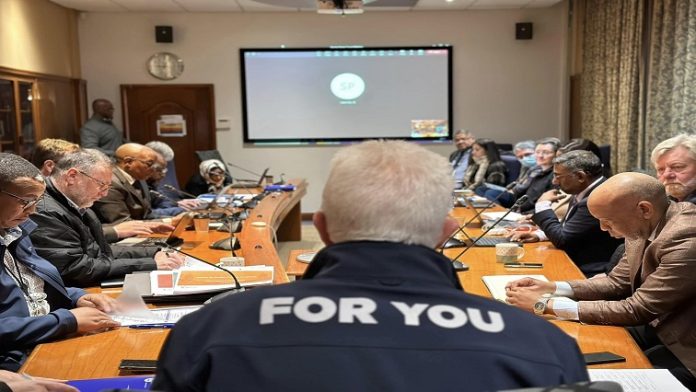Premier Alan Winde says that despite the current respite from load shedding, a different approach is needed to keep energy available to citizens.
This follows last week’s engagements between Winde, the Western Cape Energy Council, and other key stakeholders, including Minister of Electricity and Energy Dr Kgosientsho Ramokgopa. Theirs discussions focused on the region’s ongoing energy crisis and its transition towards a more sustainable and resilient energy future.
Winde says it is important to be aware of the ageing infrastructure of the existing energy network. He further emphasised the need for continued investment in renewable energy solutions, such as solar panels and wind turbines, to reduce reliance on Eskom.
“The Energy Council will continue coordinating all measures outlined in the Western Cape Energy Resilience programme, particularly in speeding up our transition from coal-based power to renewable energy.”
Winde says Ramokgopa praised the Council for its work over the past two years and reaffirmed his department’s support for its work.
During their meeting, Winde said the Energy Availability Factor (EAF) showed significant improvement between 1 April and 1 August 2024, rising to 63.3%. This is an 8 percentage point increase compared to the same period last year.
Another highlight from Ramakgopa’s presentation is that the weekly EAF saw a notable increase as well, reaching 70.67% from 26 July to 1 August 2024, with six power stations recording an EAF above 70%.
“However, the Minister pointed out there are still significant challenges with municipal and Eskom distribution infrastructure, which, in some instances, has necessitated the need for load reduction.”
Winde further welcomed Ramakgopa’s proposal to review the Energy Pricing Policy to address high electricity costs, but expressed concern over the impact of load reduction on residents, particularly those in poorer communities.
“Just like NERSA has put transparent regulations for load shedding in place that allow customers to plan, we must do the same for load reduction. Whether it is load shedding or load reduction the result is still the same, our residents are without electricity.”
Winde says there’s significant achievements have been made in the Western Cape’s resilience plan, including the distribution of nearly 4,000 load-hedding relief packs to social development facilities and 72,000 packs to schools. Additionally, solar photovoltaic (PV) systems with battery energy storage have been installed at 12 municipal trading hubs, benefiting around 100 small and medium-sized enterprises (SMMEs), and similar installations have been completed at 18 schools.
He adds that there is consensus among stakeholders on the importance of integrating gas power into the province’s energy transition strategy.
“[The Western Cape Government] is prepared to help wherever it can to develop gas-to-power capabilities and for faster enablement of Green Hydrogen (GH2) development, through partnerships with other provinces, namely the Eastern Cape and Northern Cape.”
Meanwhile, Ramakgopa briefed the public on Monday on the current status of the electricity system. He says loadshedding is not a thing of the past just yet, but that an end to rolling power cuts is in sight.


